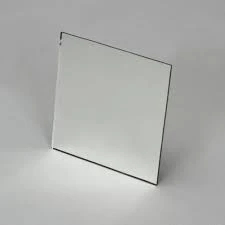

Float glass window technology has revolutionized the way we think about residential and commercial glazing. Introduced in the mid-20th century, float glass is produced by floating molten glass on top of molten tin, creating a smooth, uniform surface. This innovative manufacturing process has transformed the qualities of glass windows, optimizing them for numerous applications while enhancing performance characteristics.
One of the most significant advantages of float glass windows is their clarity and brilliance. The float glass process eliminates irregularities and imperfections commonly found in earlier glassmaking techniques. As a result, float glass windows offer superior transparency that enhances the aesthetic appeal of any building, allowing natural light to flood interior spaces. This has become particularly vital in modern architecture, where open-concept designs and large windows are prevalent.
Furthermore, float glass enhances energy efficiency in buildings. As awareness of environmental issues and energy consumption grows, the demand for energy-efficient buildings has surged. Float glass windows can be manufactured with various coatings to reflect heat and UV light, reducing the energy required for heating and cooling. Incorporating double or triple glazing further boosts insulating properties, allowing homes and offices to maintain comfortable temperatures year-round while saving on energy costs. This not only benefits the environment by reducing carbon footprints but also provides economic advantages to homeowners.
In addition to energy efficiency, float glass windows provide excellent sound insulation. Urban life is often accompanied by noise pollution, which can detract from the quality of life in city environments. The multiple layers of float glass in double or triple-glazed windows create barriers to sound transmission, significantly reducing external noise levels. This attribute makes float glass windows a preferred choice in urban residential buildings, offices, and hotels, where peace and quiet are valued.

Safety and security are also notable features of float glass windows
. While traditional glass can shatter upon impact, advancements in material science have led to the creation of tempered and laminated float glass. Tempered float glass is heat-treated to increase its strength, making it less likely to break under stress. Laminated glass incorporates a layer of plastic between two glass sheets, ensuring that if the glass breaks, shards are held in place rather than scattering, which significantly enhances safety.Another aspect worth considering is the versatility of float glass windows. This technology can be tailored to meet various design needs, from different thicknesses to an array of finishes, colors, and tints. Whether for a sleek, modern office building or a charming residential home, float glass can be customized to enhance the architectural vision while preserving functionality.
In conclusion, float glass windows are a remarkable advancement in glazing technology, combining aesthetic appeal, energy efficiency, sound insulation, safety, and versatility. As we continue to embrace sustainable living and seek innovative design solutions, float glass windows will undoubtedly play a pivotal role in transforming our built environments, making them not only more beautiful but also more functional and environmentally friendly.